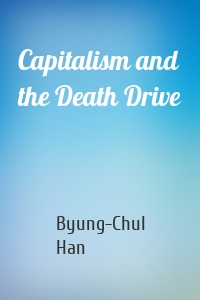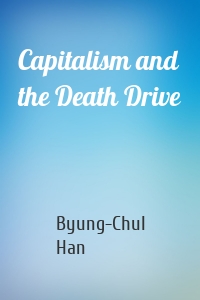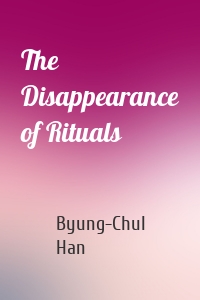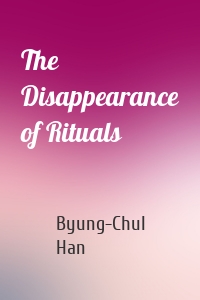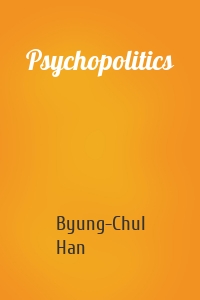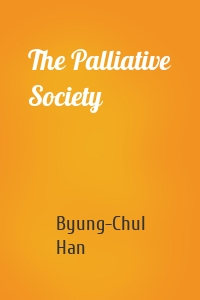Byung-Chul Han
8 кн.
Capitalism and the Death Drive
What we call growth today is in fact a tumorous growth, a cancerous proliferation which is disrupting the social organism. These tumours endlessly metastasize and grow with an inexplicable, deadly vitality. At a certain point this growth is no longer productive, but rather destructive. Capitalism passed this point long ago. Its destructive forces cause not only ecological and social catastrophes but also mental collapse. The destructive compulsion to perform combines self-affirmation and...
| Автор | Byung-Chul Han |
Capitalism and the Death Drive
What we call growth today is in fact a tumorous growth, a cancerous proliferation which is disrupting the social organism. These tumours endlessly metastasize and grow with an inexplicable, deadly vitality. At a certain point this growth is no longer productive, but rather destructive. Capitalism passed this point long ago. Its destructive forces cause not only ecological and social catastrophes but also mental collapse. The destructive compulsion to perform combines self-affirmation and...
| Автор | Byung-Chul Han |
The Disappearance of Rituals
Untrammelled neoliberalism and the inexorable force of production have produced a 21st century crisis of community: a narcissistic cult of authenticity and mass turning-inward are among the pathologies engendered by it. We are individuals afloat in an atomised society, where the loss of the symbolic structures inherent in ritual behaviour has led to overdependence on the contingent to steer identity. <br /><br />Avoiding saccharine nostalgia for the rituals of the past, Han provides...
| Автор | Byung-Chul Han |
Psychopolitics
Exploring how neoliberalism has discovered the productive force of the psyche Byung-Chul Han, a star of German philosophy, continues his passionate critique of neoliberalism, trenchantly describing a regime of technological domination that, in contrast to Foucault’s biopower, has discovered the productive force of the psyche. In the course of discussing all the facets of neoliberal psychopolitics fueling our contemporary crisis of freedom, Han elaborates an analytical framework that provides an...
| Автор | Byung-Chul Han |
Palliativgesellschaft
Heute herrscht überall eine Algophobie, eine generalisierte Angst vor Schmerzen. Jeder schmerzhafte Zustand wird vermieden. Verdächtig sind auch Liebesschmerzen. Die Schmerztoleranz sinkt rapide. Die Algophobie hat eine Daueranästhesierung zur Folge. Wie bereits in seinem Essay Müdigkeitsgesellschaft geht Han in seiner Analyse von einem grundlegenden Paradigmenwechsel unserer Gesellschaft aus. Auch die Psychologie folgt dieser Entwicklung und geht von der negativen Psychologie als Psychologie...
| Автор | Byung-Chul Han |
The Palliative Society
Our societies today are characterized by a universal algophobia: a generalized fear of pain. We strive to avoid all painful conditions – even the pain of love is treated as suspect. This algophobia extends into society: less and less space is given to conflicts and controversies that might prompt painful discussions. It takes hold of politics too: politics becomes a palliative politics that is incapable of implementing radical reforms that might be painful, so all we get is more of the same. ...
| Автор | Byung-Chul Han |


